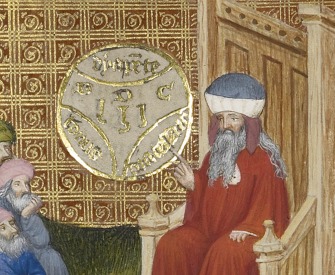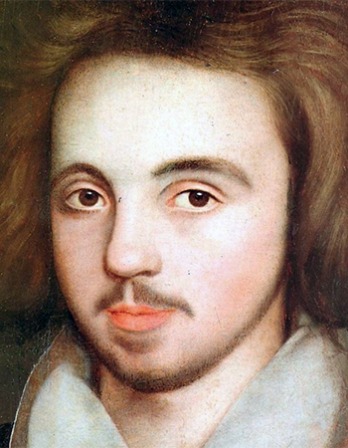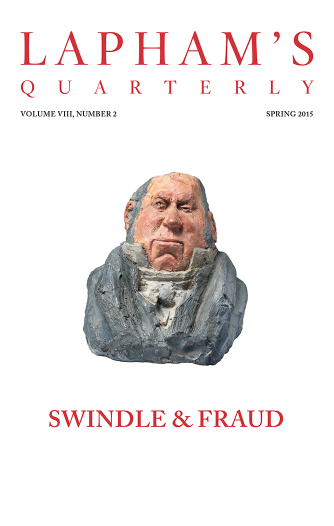There was no withstanding the aura or power of the Wild
Ox Gilgamesh. Neither the father’s son
nor the wife of the noble; neither the mother’s daughter
nor the warrior’s bride was safe. The old men said:
“Is this the shepherd of the people? Is this
the wise shepherd, protector of the people?”
They called the goddess Aruru, saying to her:
“You made this man. Now create another.
Create his double and let the two contend.
Let stormy heart contend with stormy heart
that peace may come to Uruk once again.”
Aruru listened and heard and then created
out of earth-clay and divine spittle the double,
the stormy-hearted other, Enkidu,
the hairy-bodied wild man of the grasslands,
powerful as Ninurta the god of war,
the hair of his head like the grain fields of the goddess,
naked as Sumuqan the god of cattle.
He feeds upon the grasslands with gazelles;
visits the watering places with the creatures
whose hearts delight, as his delights, in water.
One day a hunter came to a watering place
and saw Enkidu; he stood expressionless,
astonished; then with his silent dogs he went
home to his father’s house, fear in his belly.
His father said: “Go to Uruk and there
present yourself to Gilgamesh the king,
who is the strongest of all, the perfect, the terror,
the wise shepherd, protector of the people.
Tell him about the power of the wild man.
Ask him to send a harlot back with you,
a temple prostitute, to conquer him
with her greater power. When he visits the watering place,
let her show him her breasts, her beauty, for his wonder.
He will lie with her in pleasure, and then the creatures,
the gazelles with whom he feeds upon the grasslands,
and the others with whom he visits the watering places,
will flee from him who ranged the hills with them.”
So the hunter went to Gilgamesh in Uruk
and told him about the power of the wild man,
and how he had unset his traps and filled
his pits, so that the creatures got away free.
The lord of Uruk said to the hunter then:
“When you return, a temple prostitute
will go with you and with her beauty conquer
the wild man. He will lie with her and then
the gazelles with whom he feeds upon the grasslands,
and the others with whom he visits the watering places,
will flee from him who ranged the hills with them.”
The harlot and the hunter traveled together,
taking three days, back to the watering place.
For three more days they waited, and finally
Enkidu came with the creatures that love the water,
the gazelles and the others, so as to drink their fill.
The temple prostitute looked at him, Enkidu,
the hairy-bodied wild man of the grasslands,
the hair of his head like the grain fields of the goddess,
naked as Sumuqan the god of cattle.
“That is Enkidu, Shamhat, show him your breasts,
show him your beauty. Spread out your cloak on the ground.
Lie down on it. The wild man will look at you.
Show him your body. The hairy-bodied man
will come to you and lie down on you; and then
show him the things a woman knows how to do.
The gazelles and with them all the other creatures
will flee from him who ranged the hills with them.”
And so the harlot, Shamhat, showed him her breasts,
showed him her body. The hairy-bodied man
came over to her, and lay down on her, and then
she showed him the things a woman knows how to do.
For seven days Enkidu in his wonder
lay with her in pleasure, and then at last
went to seek out the company of the creatures
whose hearts delight in feeding upon the grasslands,
and visiting the watering places, and
ranging the hills. But seeing him, they fled.
The creatures were gone, and everything was changed.
His body that loved to range the hills was now
unable to follow; but in the mind of the wild man
there was beginning a new understanding.
From Gilgamesh: A New Rendering in English Verse by David Ferry. Copyright © 1992 by David Ferry. Used with permission of Farrar, Straus and Giroux LLC. Caution: Users are warned that this work is protected under copyright laws and downloading is strictly prohibited. The right to reproduce or transfer the work via any medium must be secured with Farrar, Straus and Giroux, LLC.
From The Epic of Gilgamesh. The fullest extant version of the poem is inscribed in Akkadian on a dozen tablets unearthed between 1849 and 1851 among the contents of a seventh-century-bc Assyrian king’s library. When reading a passage in the work about a great flood, redolent of the biblical deluge, the British Museum curator George Smith is said to have exclaimed, “I am the first man to read that after more than two thousand years of oblivion!” He then ran around the room excitedly and undressed; subsequently, he published the first partial translation of the epic in 1876.
Back to Issue




